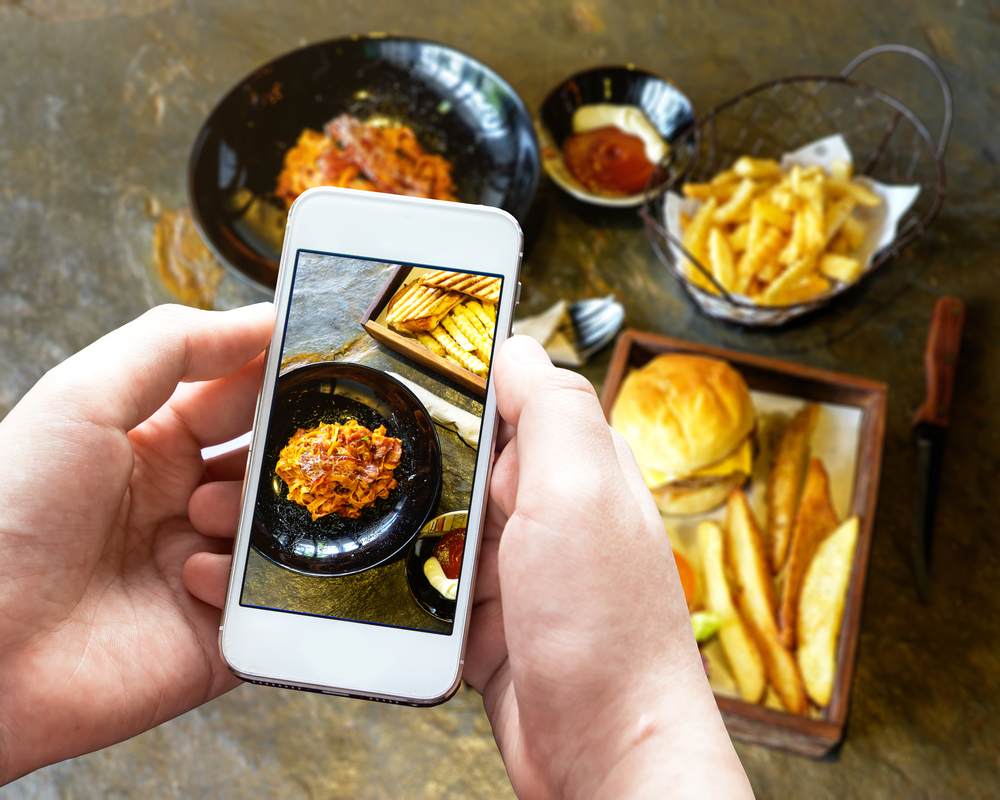For 21st century dieters, is it time for the written food journal to go high tech?
That's the question some researchers in the Northwestern U.S. are examining as they study dieters who, instead of writing down everything they eat, document their daily food consumption on Instagram, the picture-laden smartphone app.
The key to any weight-loss plan is, of course, to stay with the program. So plan advisors in this $20 billion industry are always on the lookout for ways to help their clients to do just that.
An accepted and essential practice for millions of American dieters is to track calorie consumption by keeping a written record. But if it's easier to snap pictures of food, without undermining a particular diet's effectiveness, then shelving the food journal – and the obligatory drudgery that goes with it – might make sense.
The research done at the University of Washington, which involved working with just 16 people, cannot be seen as convincing or conclusive. However, it does provide a novel approach to potentially helping dieters stick to their food plan.
In a release issued by the university, the research team listed several benefits of photographically documenting a dieter's intake versus keeping a journal. Researchers noted that pictures make a dieter's consumption "more real" than an simple log entry. And for those in a weight-loss group, by sharing images online the dieter could be held more accountable by meeting participants. Conversely, those peers could also provide words of encouragement, and in real time.
 Further, with a visual list of food consumed it's easier for a dieter – or concerned group member – to spot signs of over eating. Also, there's the entertainment value, as well as the fact that given the legions of non-dieters who have already adopted the practice of posting meal pictures to Instagram – there are hundreds of millions of food pictures posted there – there's no stigma attached.
Further, with a visual list of food consumed it's easier for a dieter – or concerned group member – to spot signs of over eating. Also, there's the entertainment value, as well as the fact that given the legions of non-dieters who have already adopted the practice of posting meal pictures to Instagram – there are hundreds of millions of food pictures posted there – there's no stigma attached.
“The benefit of photos is that it’s more fun to do than taking out a booklet or typing hundreds of words of description in an app,” said Christina Chung, an engineering doctoral student and the study's lead author. "Plus it's more socially appropriate for people who are trying to track their diets to snap a photo of their plate when they’re out with friends — everyone’s doing it and it doesn’t look weird.”
The photo exercise also makes dieting more of a public endeavor – which these days is increasingly acceptable – and more of a supportive, group experience.
"Maintenance becomes pretty boring for a lot of people because your quest to hit a goal has worn off,” states assistant professor Sean Munson, and senior author. “This made things more interesting and meaningful for people because after they got to their goal, they turned to thinking about how they could help others and stay accountable to people who were relying on them for support.”
As for the drawbacks, sure, if a dieter made some poor, high-calories choice that produced despair or shame the camera could just remain pocketed. But an equivalent act of non-disclosure could take place with a written log as well. All in all, if a more comprehensive study were to be undertaken with a much larger participant group, the results might be worthwhile.
The UW research will be shared at the Conference on Human Factors in Computing Systems, which will be held in Denver from May 6 to May 11.

